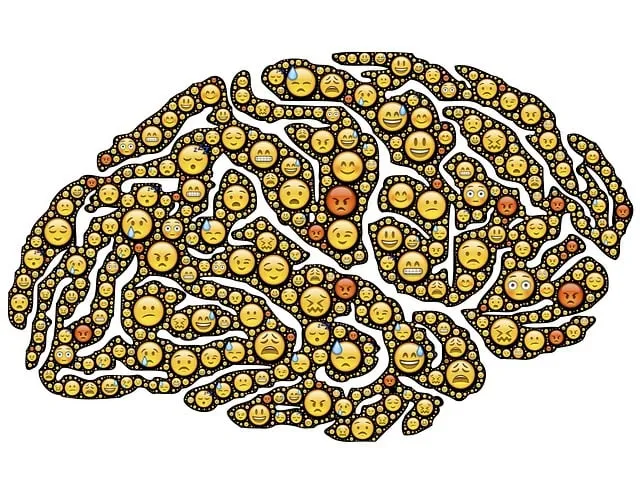Developing an effective marketing strategy for a mental wellness app requires understanding target demographics, as evidenced by the Lone Tree Kaiser Permanente behavioral health services reviews. By analyzing user feedback, developers can tailor messages to specific needs, such as stress management or work-life balance. Successful apps offer holistic solutions like journaling and community outreach, addressing a significant market gap. A standout unique value proposition, combined with multi-platform marketing (social media, email, partnerships), drives user choice in a competitive digital health landscape. Regularly analyzing KPIs like user acquisition costs, retention rates, and session length ensures strategy optimization based on app goals and user feedback.
Mental wellness apps are gaining traction, and a robust marketing strategy is key to success. This guide navigates the process of developing an effective plan, from understanding your target audience – exemplified by the insightful Lone Tree Kaiser Permanente Behavioral Health Services reviews – to identifying market gaps and crafting a unique value proposition. We explore multi-platform marketing approaches to reach potential users and discuss measuring success through KPIs. By implementing these strategies, app developers can thrive in the competitive mental wellness space.
- Understanding Target Audience: Lone Tree Kaiser Permanente Behavioral Health Services Reviews as a Reference
- Unveiling the Need for Mental Wellness Apps: Market Gap Analysis
- Crafting a Unique Value Proposition: Differentiating Your App from Competitors
- Multi-Platform Marketing Strategy: Reaching Potential Users Effectively
- Measuring Success: Key Performance Indicators (KPIs) and Continuous Improvement
Understanding Target Audience: Lone Tree Kaiser Permanente Behavioral Health Services Reviews as a Reference

Understanding your target audience is a crucial step in developing an effective marketing strategy for a mental wellness app. When it comes to behavioral health services, the needs and preferences of individuals can vary greatly. For instance, the Lone Tree Kaiser Permanente Behavioral Health Services reviews provide valuable insights into what users seek in such services. These reviews highlight the importance of personalized care, accessible platforms, and evidence-based practices. By analyzing these feedbacks, app developers can tailor their marketing messages to resonate with specific demographics.
For example, young adults might be drawn to apps that offer stress management techniques through positive thinking exercises and mindfulness practices, while working professionals could prioritize apps that facilitate conflict resolution techniques for better work-life balance. Incorporating these aspects into your app’s marketing campaign, as evidenced by the success of Lone Tree Kaiser Permanente Behavioral Health Services reviews, can help attract and engage users who are seeking comprehensive mental wellness solutions aligned with their unique needs and cultural competency preferences, as offered in Healthcare Provider Cultural Competency Training programs.
Unveiling the Need for Mental Wellness Apps: Market Gap Analysis

In today’s fast-paced world, mental wellness has emerged as a paramount concern, prompting individuals to seek innovative solutions for managing their psychological well-being. This shift is reflected in the growing demand for digital tools that offer accessible and personalized support, especially among those who might face barriers to traditional therapy or counseling services. Lone Tree Kaiser Permanente behavioral health services reviews highlight the need for more inclusive and flexible options, as not everyone has easy access to on-site mental health professionals. Thus, mental wellness apps have become a game-changer in this landscape.
Market gap analysis reveals a significant unmet need for applications that seamlessly integrate various aspects of mental wellness into daily routines. While many existing apps focus on specific aspects like meditation or mood tracking, there is a growing demand for comprehensive solutions that combine features such as Mental Wellness Journaling Exercise Guidance, Burnout Prevention strategies, and Community Outreach Program Implementation to foster a holistic approach to mental health management. By addressing these gaps, developers can cater to a broader audience seeking effective yet accessible tools for maintaining and improving their psychological resilience.
Crafting a Unique Value Proposition: Differentiating Your App from Competitors

In today’s digital age, where numerous mental wellness apps compete for users’ attention, crafting a unique value proposition is essential to stand out from the crowd. To differentiate your app, focus on what sets it apart and how it addresses specific needs that competitors might overlook. For instance, Lone Tree Kaiser Permanente behavioral health services reviews highlight effective strategies that can inspire trust in your app’s ability to foster self-care routine development for better mental health.
By integrating innovative features or tailoring your app to niche populations, you can create a compelling case for users. Develop public awareness campaigns that emphasize the importance of resilience building and showcase how your app facilitates this process. Remember, by clearly communicating these unique aspects, potential users will be more inclined to choose your app over alternatives, ensuring its success in a competitive market.
Multi-Platform Marketing Strategy: Reaching Potential Users Effectively

A robust multi-platform marketing strategy is key to effectively reaching potential users and promoting mental wellness apps. With competition high in the digital health space, a well-rounded approach can help your app stand out. Incorporate diverse channels such as social media, email campaigns, and partnerships with relevant organizations like Lone Tree Kaiser Permanente behavioral health services (as an example), to create a comprehensive reach. Each platform offers unique opportunities; for instance, Instagram and TikTok are ideal for engaging content that highlights the benefits of your app’s features, while LinkedIn can be leveraged for targeted ads aimed at working professionals seeking burnout prevention tools or confidence-boosting techniques.
By utilizing conflict resolution techniques through open communication and understanding user needs, you can tailor your marketing messages to resonate with specific demographics. This strategy ensures a higher likelihood of conversion as users feel seen and understood. Remember to regularly analyze performance metrics across all platforms to refine and optimize your approach, continually adapting to the ever-changing digital landscape.
Measuring Success: Key Performance Indicators (KPIs) and Continuous Improvement

Measuring success is paramount when developing a marketing strategy for mental wellness apps, and setting clear Key Performance Indicators (KPIs) serves as a compass guiding your journey. For an app focused on behavioral health services, KPIs might include user acquisition costs, retention rates, average session length, and the number of active users. By tracking these metrics, you can gauge the effectiveness of your marketing efforts and identify areas for improvement.
For instance, Lone Tree Kaiser Permanente’s behavioral health services reviews highlight the importance of positive user experiences and outcomes. If your app aims to reduce stress, develop public awareness campaigns around mental health, or offer conflict resolution techniques, measuring success should align with these goals. Continuous improvement involves regularly analyzing data, staying attuned to user feedback, and iteratively refining marketing strategies to ensure the app remains relevant, engaging, and aligned with its intended purpose.
Developing a comprehensive marketing strategy for mental wellness apps is essential in addressing the growing demand, as evidenced by the Lone Tree Kaiser Permanente behavioral health services reviews. By understanding your target audience, identifying market gaps, and crafting a unique value proposition, you can effectively reach potential users across various platforms. Continuous improvement, guided by measurable KPIs, ensures your app remains competitive and relevant in this dynamic space. Through strategic planning and data-driven insights, your mental wellness app can make a meaningful impact on the well-being of users worldwide.






